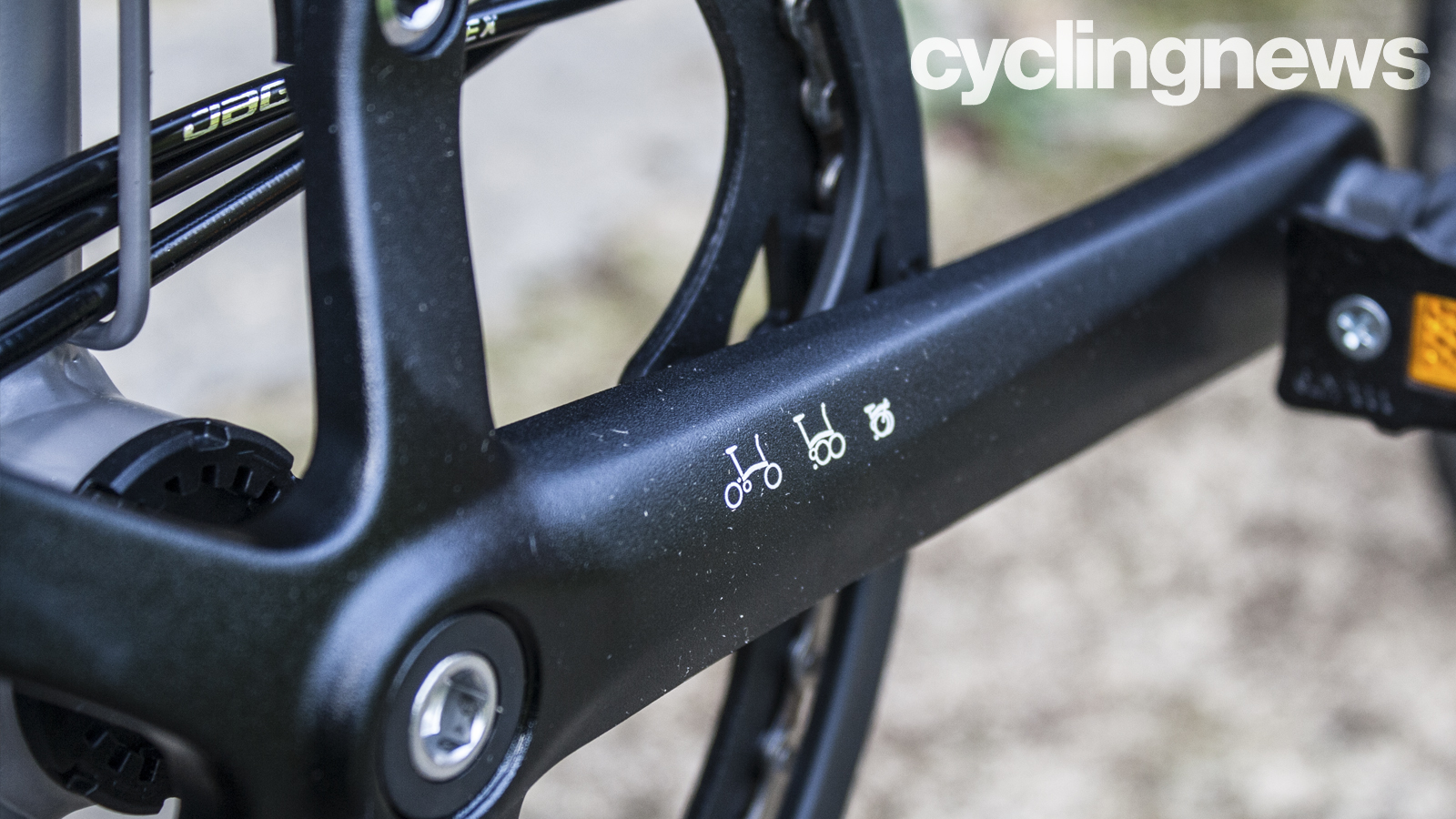'The industry shot itself in the foot' - Brompton boss blames lack of sales as profits crash by 99%
Pre-tax profits fall from over £10 million to just £4,602

The Managing Director of well-known British folding bike brand, Brompton, Will Butler-Adams, has said the industry "shot itself in the foot," during the COVID-19 pandemic, and cited increased competition from hire bikes and cheaper Chinese competitors, as the brand's profits crashed by over 99% last year.
In the Companies' Accounts filed at Companies House, and published late December, it was revealed that the company's profits fell from £10,680,953 to just £4,602 for the 12 months ending March 31, 2024.
In what is described as a "challenging year for the group," sales dropped 5.3% to £122.6m, courtesy of an 8.2% reduction in bike sales, down to 84,899 from 91,875 the prior year.
This is compounded by a 15% increase in operating costs, which rose to £62.7m, and results in a profit before tax of 0.0%, down from 8.3%.
The brand says this is "primarily due to the miss in budgeted sales by the Group, and the delay in being able to respond with a reduction in costs due to the committed and fixed nature of a number of them."
In contrast, however, the Group's net assets were up, rising to £65,119,594 from £49,410,392 the prior year, which the brand says is "primarily due to a cash injection from an equity fundraise on 15 May 2023."
The brand says the drop in sales is driven by "wider global economic uncertainty and challenges in the cycling industry," but interestingly, it appears that the entirety of the downturn is attributable to domestic sales, while exports as a whole remain stable.
Get The Leadout Newsletter
The latest race content, interviews, features, reviews and expert buying guides, direct to your inbox!
"Exports accounted for 80% of bike unit sales," the report reads, increasing from 74% in 2023. Eighty per cent of 84,899 – the number of units sold in the year – is 67,919 bikes exported. For the year prior, 74% of the 91,875 units sold were exported, totalling 67,988. Year over year, this represents a drop of just 0.1% or 69 bikes.
Of course, these numbers don't explain the fluctuations of individual markets within the exports category.
Brompton also says that via "further ramp-up of the T Line and P Line products," it has seen a shift toward more premium products, and as such, an increase in average revenue per bike, which has helped to partially offset the reduction in sales.
The brand also says it has invested in its eCommerce platform and the Brompton Junction retail stores in a shift towards more direct-to-consumer sales. There's nothing to suggest Brompton is going the way of Canyon and toward a sole direct-to-consumer model, but it has seen a 13% increase in unit sales to 25,649, or 30% of the brand's business.
The brand says the increased revenue from D2C has helped to maintain the gross profit margin in the face of higher costs, but admits it actually fell slightly from 50.3% to 50.0%.
Product recalls and industry turmoil
In recent weeks, Brompton has been hit by two product recalls, covering the G Line and T Line bikes respectively. The G Line recall relates to an instance of a broken Hinge Spindle and will be replaced with an updated part, while the T Line recall comes as a result of the handlebar support becoming misaligned, and simply requires correct torque application.
The financial effect of these aren't reflected in the company's accounts covered above, but will likely create further costs and challenges for the British brand in 2025, a year which Butler-Adams expects will be another troubling year for the industry.
“The industry is still in turmoil and will not get better this year," the Managing Director said in an interview with The Guardian. "It will not be as bad as 2024 but there is still excess stock."
The bike industry has been in a constant state of fluctuation since the COVID-19 pandemic. The initial boom in popularity created a surge in demand, while factory closures shortened supply. When supply eventually caught up and orders started to be fulfilled, demand dropped off a cliff, leaving vast amounts of stock which couldn't be sold.
Dozens of businesses have been forced to close as a result, including British distributors Moore Large and i-Ride, while storied brands Rocky Mountain and GT Bicycles are the latest to face administration. It even forced UK-based eCommerce behemoth WiggleCRC was forced to sell up.
Butler-Adams cited widespread discounting as businesses try to clear the stock as one of its major challenges, while competition from electric rental bike schemes such as Lime, the rise of cheaper Chinese rivals, and the British startup Gocycle are also posing problems for the brand.
Due to the company's break-even status, no dividends were paid to the Group's directors in the year ending March 2024, but even so, the report reveals that the company's 13 directors took home a combined £1.87m. This figure includes an emolument of over £500,000 for the highest-paid director, which although a significant sum of money, represents a nearly £600k pay cut, falling from £1.1m in 2023.
Despite the company's profit crash and the wider industry turmoil, Butler-Adams remains optimistic about the brand's future given its utilitarian nature, as more and more governments drive toward greener modes of transport.
"London, Edinburgh, New York, Seville, Paris all have the momentum of getting people more active for air quality and trying to get people fitter," Butler-Adams said. "In the macro picture, things are going in the right direction. The industry shot itself in the foot but that will roll out.”

Josh is Associate Editor of Cyclingnews – leading our content on the best bikes, kit and the latest breaking tech stories from the pro peloton. He has been with us since the summer of 2019 and throughout that time he's covered everything from buyer's guides and deals to the latest tech news and reviews.
On the bike, Josh has been riding and racing for over 15 years. He started out racing cross country in his teens back when 26-inch wheels and triple chainsets were still mainstream, but he found favour in road racing in his early 20s, racing at a local and national level for Somerset-based Team Tor 2000. These days he rides indoors for convenience and fitness, and outdoors for fun on road, gravel, 'cross and cross-country bikes, the latter usually with his two dogs in tow.